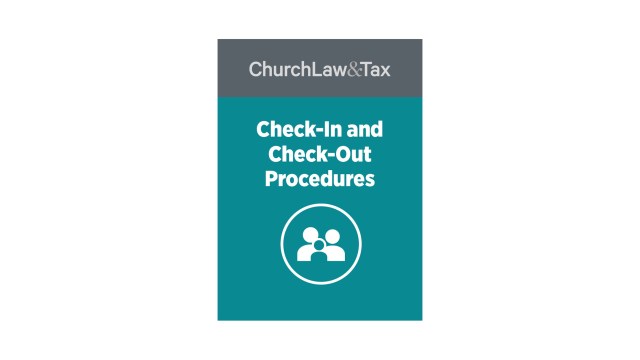Church insurance policies generally require that a church notify its insurance company in writing, within a specified period of time, concerning any property damage or personal injury that occurs. Failure to do so can relieve the insurance company of any duty to defend the church in a lawsuit or pay a settlement or jury verdict as a result of the damage or injury. A recent case illustrates this point.
Facts. On April 6, 2006, a man (the “plaintiff”) sued a church, claiming that he had been sexually molested by a church employee on numerous occasions between 1978 and 1982. The plaintiff claimed that the church had been negligent in hiring and retaining the perpetrator, that it was grossly negligent, and that it inflicted emotional distress. The church changed insurers during the time that the victim was being molested, so two insurance policies were implicated. The church only informed one of the two insurers of the claim, and this insurer retained an attorney who filed an answer to the lawsuit on May 12, 2006. The church did not notify the second insurer of the claim until 2008 because it had been unable to locate its nearly 30-year-old policy on molestation in the church until then.
In 2008, some 21 months after receiving the initial lawsuit, the church notified the second insurer of the claim. This insurer later informed the church that it was denying coverage as a result of the church’s failure to notify it of the claim in a timely manner. The church’s insurance policy imposed various duties upon the church, including a duty to notify the insurer of claims and lawsuits:
In the event of an occurrence, written notice containing particulars sufficient to identify the insured and also reasonably obtainable information with respect to the time, place, and circumstances thereof, and the names and addresses of the injured and of available witnesses, shall be given by or for the insured to the Company or any of its authorized agents as soon as practicable.
If a claim is made or a suit is brought against the insured, the insured shall immediately forward to the Company every demand, notice, summons, or other process received by him or his representative.
No action shall lie against the Company unless, as a condition precedent thereto, there shall have been full compliance with all of the terms of this policy.
As a result, the insurer refused to retain legal counsel or contribute toward any verdict or settlement. The second insurer later agreed to provide a defense in the lawsuit but reserved its position on coverage.
The lawsuit was settled for $4.3 million during a court-ordered mediation in 2009. The first insurer paid $1.75 million of the settlement for the time period covered by its policy, while the second insurer contributed $175,000. The church paid the remaining $2.3 million. The church insisted that the second insurer was responsible for the full amount the church had paid, and the case was submitted to a federal district court in Georgia for a determination as to the second insurer’s obligations under the church’s policy.
In 2011 the court ruled that the second insurer’s duties under the policy were terminated by the church’s failure to provide timely notice of the claim. The fact that the church “couldn’t find” the relevant policy was no excuse, even though the policy was nearly 30 years old. The court also rejected the church’s argument that the insurer was required to show that it had been “prejudiced” by the church’s delay. The church appealed to a federal appeals court.
The court’s ruling. The court began its opinion by observing:
Notice provisions expressly made [are a] condition precedent to coverage. [They] are valid and must be complied with unless there is a showing of justification. If an insured unreasonably fails to comply with applicable notice provisions in a timely manner, the insurer is not obligated to provide either a defense or coverage. The insured has the burden of showing justification for a delay in providing notice.
The court concluded that the church failed to provide timely notice to the second insurer, and this relieved it of any duty under the policy to provide a defense or contribute any amount toward the settlement. OneBeacon America Insurance Co. v. Catholic Diocese, 477 Fed.Appx. 665 (11th Cir. 2012).
Key point. The gravity of failing to comply with an insurance policy’s notice requirement is graphically illustrated by this case. The church’s 21-month delay in notifying its insurer of the claim relieved the insurer of any legal duty to provide a legal defense or contribute toward the $4.3 million settlement. This left the church holding the bag for more than $2 million. The fact that the delay was caused, in part, by the church’s inability to quickly locate its 30-year-old policy was no excuse, according to the court.
Importance to church leaders. Most insurance policies impose on the insured a duty to promptly notify the insurance company of any potential claim. Failure to comply with this condition can result in a loss of coverage. Be sure you are familiar with the notice provisions in your church’s insurance policies and comply with all of the relevant requirements. Pay special attention to the following considerations:
(1) Timely notice. Provide the insurer with notice of an accident or occurrence within the time limits specified by the relevant policy. It is common for policies to require the insured to notify the insurer of an accident or occurrence “as soon as practicable,” or “immediately.” Also, be alert to the possibility that more than one policy may be implicated, especially if the wrongful acts causing the claim occurred over an extended period of time.
(2) What triggers the notice requirement? The duty to notify your insurer arises when you learn of an “occurrence” that, “from an objective standpoint, may potentially lead to a claim against the insured that might implicate the policy.” Note that the duty to notify an insurer is not triggered solely by the anticipation of valid claims that may be covered; instead, as one court noted, “the duty of notice extends to incidents sufficiently serious as to lead a person of ordinary intelligence and prudence to believe that any claim arguably covered by the policy may be brought, even claims that may ultimately fail or that the insured may believe are not valid in law or fact.”
Key point. Church leaders should notify their insurer of a potential legal claim even when they are not certain that it is valid. Err on the side of caution. Remember, a failure to comply with the notice requirement can have disastrous financial consequences for the church.
(3) The content of a valid notice. Your insurance policy will describe the information that needs to be communicated when notifying your insurer of a potential claim.
(4) Notifying your broker may not be enough. Many churches purchase their insurance through a local broker. Church leaders naturally assume that in the event of an accident or injury they can simply call this individual and everything will be “taken care of.” This is not always the case. A broker may not be deemed an “agent” of the insurance companies he or she represents, so when a church provides its insurance broker with notice of an accident or loss, it is not necessarily notifying its insurance company.
Notify both your broker and insurance company. The insurance company’s address will be listed on your insurance policy. Ask the insurance company to provide you with written confirmation of receipt of your notice.
(5) Written rather than oral notice. If your insurance policy requires written notice, be sure you provide written rather than oral notice of a loss.
Key point. Church leaders should be familiar with the insurance policy’s provisions regarding notification of the insurance company. Is written notice required? If so, how soon after a loss? It is essential that these provisions be scrupulously followed in order to prevent a loss of coverage.
If you change insurance companies, carefully examine the new insurance policy. Do not assume that it will contain the same “notice” provisions as your previous policy.
Key point. The duty to inform your insurance company of an accident or loss arises when the injury occurs, not when a lawsuit is filed. The purpose of the notice requirement is to give your insurance company sufficient time to investigate the incident and provide a defense.
Example. A pastor is informed by a parent that her minor child was molested by a church volunteer. The volunteer is questioned, and admits to molesting the child. This incident represents a potential “loss” under the church’s insurance policy, triggering a duty to inform the church’s insurance company of the loss within the period of time specified in the insurance policy. It is very important that it not wait until a lawsuit is filed to notify its insurance company. Such a delay not only hinders the insurance company’s ability to investigate the incident and defend the case, but also may result in loss of coverage under the policy. This could have disastrous consequences for the church.
Record Retention
This case illustrates the importance of retaining church insurance policies permanently. In some cases, the deadline for filing a lawsuit (the so-called “statute of limitations”) does not expire for many years or even decades. This often is due to the application of the “discovery rule,” which suspends the statute of limitations until a victim “discovers” the connection between his or her injuries and the wrongful conduct. A church must be able to produce its insurance policy or policies in order to trigger coverage for any claim, including those from the distant past. Without a policy, the church will be “uninsured,” meaning that it will be responsible for retaining and compensating its own attorney, and paying any verdict or settlement. The takeaway point is this—safeguard your church. Retain your records.





